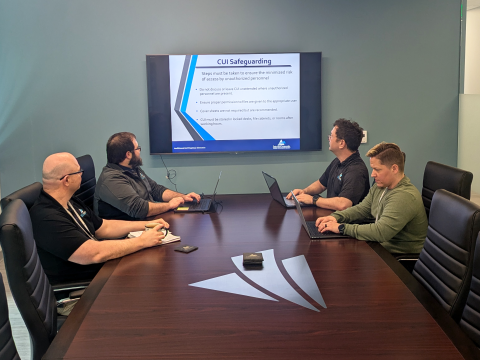Study Considers Characteristics of the Future Work Force
With technologies entering the market at a blistering pace and autonomous systems expected to make a larger contribution, the work force of the future may not resemble past efforts.
Eager to try and make sense of the coming environment, Deloitte's recent study, Government jobs of the future: What will government work look like in 2025 and beyond?, delves into predictions.
To imagine what a future labor force may look like, Deloitte developed a series of possible profiles of workers and their jobs, identifying perspective tools, resources and skills. In addition, Deloitte considered how emerging technologies could enable workers to be more impactful and productive. Naturally, Deloitte expects some jobs to take on a new form and sees new jobs being created.
As for universal shifts, the consulting firm predicted that employees will be seen as the cornerstone of the workplace. Employers will focus on employee wellness and personal development. Employees will have greater mobility and flexibility, and will be offered opportunities to pursue passion projects and tap into underutilized skill sets, Deloitte predicts.
The work force will be augmented by the further integration of machines and humans. “Using their individual strengths, they can be greater than the sum of their parts,” according to the report. With machines playing a bigger role, automation will help lighten the load for employees. As such, the contribution from humans will be more closely defined as capabilities or tasks that autonomous systems cannot perform.
“It is clear that the traits that make us uniquely human, the things machines cannot do, are our biggest assets,” the report stated. For Deloitte, this means that employees will handle more mission-critical work. Moreover, when human judgment is combined with machine intelligence, decision making will be more effective, the consulting firm suggests.
In addition, future learning will happen organically. It will be “baked into everyday work, at moments where that knowledge or skill is needed, through small, actionable nuggets of information or micro learning modules,” Deloitte stated.
For the military of the future, a so-called smart base commander will focus more on strategic planning, critical thinking and problem-solving than ever before—and will need sharper enterprise resource planning and analytical skills, the report says. Deloitte expects a commander in the future to spend more time on analysis and decision-making, creating strategies, and less time on administrative tasks. In addition, a future commander will lead cross-functional teams and provide collaborative leadership, including joint service and international operations.
Analytical software and artificial intelligence-supported dashboards will support commanders’ efforts, making it easier to visualize resource allocation. “In a global information war, the front is everywhere,” the report warned. “Secure communication tools enable the commander to communicate confidentially from any location.”
Commanders of the future also will be versed in cyber risk management, additive manufacturing and advanced analytics for smart systems.



Comments